Hair Blu-ray Movie
HomeHair Blu-ray Movie 
Metro-Goldwyn-Mayer | 1979 | 121 min | Rated PG | Jun 07, 2011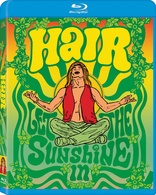
Movie rating
7.2 | / 10 |
Blu-ray rating
| Users | 4.0 | |
| Reviewer | 3.5 | |
| Overall | 3.5 |
Overview
Hair (1979)
During the Vietnam war, a small time farm boy enlists in the army and encounters the New York City hippie subculture and he is rapidly indoctrinated into it.
Starring: John Savage, Treat Williams, Beverly D'Angelo, Nicholas Ray, Annie GoldenDirector: Milos Forman
| Musical | 100% |
| Drama | Insignificant |
| Comedy | Insignificant |
Specifications
Video
Video codec: MPEG-4 AVC
Video resolution: 1080p
Aspect ratio: 1.85:1
Original aspect ratio: 1.85:1
Audio
English: DTS-HD Master Audio 5.1 (48kHz, 24-bit)
Spanish: Dolby Digital 2.0 Mono (256 kbps)
French: Dolby Digital 2.0 Mono (256 kbps)
Italian: Dolby Digital 2.0 Mono
German: Dolby Digital 2.0
Spanish: Dolby Digital 2.0 Mono (256 kbps)
Hungarian: Dolby Digital 5.1 (448 kbps)
Turkish: Dolby Digital 2.0
Spanish=Latin & Castillian
Subtitles
English SDH, French, German, Italian, Spanish, Bulgarian, Cantonese, Croatian, Dutch, Hungarian, Mandarin (Traditional), Slovenian, Thai, Turkish
Discs
50GB Blu-ray Disc
Single disc (1 BD)
Playback
Region free
Review
Rating summary
| Movie | 3.0 | |
| Video | 4.0 | |
| Audio | 4.0 | |
| Extras | 0.5 | |
| Overall | 3.5 |
Hair Blu-ray Movie Review
It Was Never the Age of Aquarius
Reviewed by Michael Reuben June 23, 2011After winning the best director Oscar for One
Flew Over the Cuckoo's Nest, Milo Forman chose
what must have been the toughest option on offer: a movie of the musical Hair. Leave aside the
fact that movie musicals were falling out of fashion (and have never returned), as audiences grew
unwilling to accept the convention of characters bursting into song. The challenge of Hair was
that it was more a revue than a musical, an evening of catchy songs performed by characters who
shared experiences with the audience before the curtain fell. Lacking a traditional narrative (a
"book", in theater parlance), the show used the excitement of a rock concert to hold the
audience's attention. Before you could even consider rolling the cameras, someone had to write a
new story. The task ultimately fell to playwright Michael Weller.
The first problem Weller had to address was the passage of time. When Hair first debuted at
Joe Papp's New York Shakespeare Festival in 1967, then moved to Broadway the next year, the
Vietnam War was at its height, and every American male had to register for the draft upon
turning eighteen. These offstage realities resonated through every performance of Hair, such that
the mere act of burning a draft card on stage supplied volumes of subtext. By the time Forman
made his film, the war was long over and the draft had been abolished. Weller's screenplay had
to find other ways to express the dark undercurrents that have always been an essential
counterpoint to Hair's joyous outpourings. It's a common misconception that the musical and the
film declared "the dawning" of the Age of Aquarius. That was more an expression of hope -
even defiance - in the face of pain, loss and insurmountable odds. Every version of Hair I've seen,
including the successful 2009 Broadway revival, ends with the death of a
major character (though not always the same one).
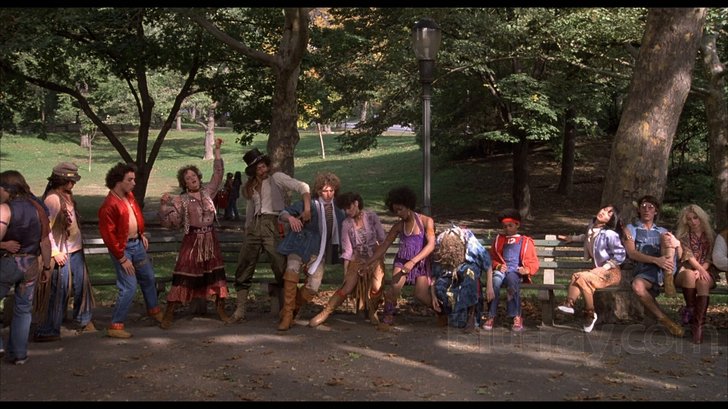
In Oklahoma, a young man, Claude Bukowski (John Savage), bids his father farewell and boards a bus for New York City to be inducted into the army. This opening immediately alerted fans of the stage musical to expect something different, because the original Claude was a conflicted young rebel from Flushing, Queens.
With a few days' leisure time in New York, Claude wanders into Central Park, where he encounters the Sixties counterculture in full swing. He watches in fascination as a diverse group of people dance and celebrate nothing in particular ("Aquarius"). Several people draw special attention: Berger (Treat Williams), a naturally charismatic leader; Woof (Don Dacus), who is white; Hud (Dorsey Wright, who would appear the same year in The Warriors), who is black; and Jeannie (Annie Golden, later a regular on Cheers), who is pregnant by either Woof or Hud but is content to wait until the baby's birth to find out which one.
Though amused by the group, Claude is prepared to continue sightseeing when a chance encounter changes his plans. A rich girl, Sheila Franklin (Beverly D'Angelo, long before the Vacation movies), rides through the park on horseback with her two future bridesmaids. Berger and his friends playfully chase them ("Sodomy"), but lose control of the horse they've rented for the occasion. Claude, with his western skills, comes to their rescue and is instantly smitten with Sheila, who rides away ("Donna"). Claude remains in the park, and the new friends party through the night ("Hashhish", "Colored Spade", "Manchester, England", "I'm Black/Ain't Got No").
(Sheila's character is another major departure from the original musical, where she was a political activist hopelessly in love with Berger. Traces of that relationship remain in scenes of flirtation, but otherwise the character in the film might as well have a different name. Even her signature song, "Easy to Be Hard", has been assigned to someone else.)
As Claude is about to leave the next morning, Berger spots Sheila's engagement announcement in a discarded newspaper. In his usual Pied Piper style, Berger persuades everyone to crash the engagement party, which, according to the paper, is in Short Hills, New Jersey. There, Berger scandalizes the very proper attendees ("I Got Life") and gets himself and all his friends arrested. Nevertheless, Sheila, who has enough of a rebellious streak to smoke pot with her bridesmaids, is intrigued.
Claude uses the emergency cash his father gave him to get Berger released, so that Berger can raise enough money to free the rest of them. In jail, the guards try to cut Woof's hair, sparking a protest ("Hair"), but Berger returns in time, having cadged the necessary funds from his mother. The group returns to the park ("Initials"), where Claude has his first experience with LSD, which induces a twisted vision of a wedding with Sheila ("Hare Krishna"). But after a late-night's skinny-dipping, Claude must report for induction ("Where Do I Go?"). Scenes at the induction center are intercut with scenes in the park of groups of women celebrating certain appetites they share with the army ("Black Boys", "White Boys"). Claude departs for basic training in Nevada "(Walking in Space").
The following winter, Sheila seeks out the group to share a letter she's received from Claude. Berger impulsively decides they should all drive out west to visit him ("Good Morning, Starshine"). They're joined by an unnamed woman from Hud's past, who appears suddenly calling him "Lafayette" and asking that he return home and help her care for the son accompanying her, whose name is Lafayette, Jr. ("Easy to Be Hard").
In Nevada, the M.P.'s turn the group away from the base, which is on alert. But Sheila and Berger devise a brazen ruse to sneak onto the base and smuggle out Claude for a picnic. Still, the war machine can be mocked but not stopped, and Claude's platoon is ordered onto transport planes bound for Vietnam ("The Flesh Failures/Let the Sunshine In").
The creators of the stage musical Hair were vocal in their dissatisfaction with Forman's film, and in fairness to them, not every change made by Forman and his screenwriter worked equally well. Setting "Walking in Space", an unabashed paean to hallucinogens, to an army training montage remains a questionable decision, even today when The Hurt Locker has taught us that "war is a drug". (It isn't that kind of drug.) "Manchester, England" was always a goofy song, but it makes zero sense if Claude is an Oklahoma farm boy and not a kid from Flushing trying to pretend he's exotic. (The introductory dialogue written for Treat Williams doesn't work.) And setting the title song's equation of hair length and freedom in a jail may have sounded like a good idea on paper, but after the open spaces of Central Park, even the best camera angles can't make the scene look anything but cramped and ugly. (It doesn't help that Twyla Tharp's choreography for the sequence is barely distinguishable from a prison riot.)
But other decisions pay off in interesting ways. Sheila's ballad, "Easy to Be Hard", a top 40 hit, acquires new layers of poignance when sung by a mother to her son imploring him to be responsible:
Especially people who care about strangers,
Who care about evil and social injustice.
Do you only care about the bleeding crowd?
"Good Morning, Starshine" gains an added lilt when Sheila sings it to accompany that most American of pastimes, a road trip. And the ominous strains of "The Flesh Failures" have seldom been so effectively showcased as in the elaborately edited sequence with which Forman ends the film (and which I won't spoil for first-time viewers).
Much about Hair has dated, but I grew up with the show, and I'm surprised at how relevant its animating impulses still feel. The yearning for transcendence and participation in something larger than oneself continues unabated, spurred by the fretful sense of hostile machinery run amuck and barely kept at bay. Like Claude, people routinely ask themselves "Where do I go?", and few ballads have put the question as simply or with such pathos. In the summer of 2008, I sat in the Delacorte Theater in Central Park not far from where Forman filmed many of his sequences and watched the revival of Hair that eventually transferred to Broadway. As the chorus sang "The Flesh Failures", the lines seemed newly evocative:
We starve, look
At one another
Short of breath
Walking proudly in our winter coats
Wearing smells from laboratories,
Facing a dying nation,
Of moving paper fantasy
Listening for the new told lies.
With supreme visions of lonely tunes.
Somewhere
Inside something there is a rush of
Greatness,
Who knows what stands in front of
Our lives?
I fashion my future on films in space.
Then the chorus parted, beseeching the heavens to "let the sun shine in", as the body of a dead soldier was revealed on the stage. The more things change . . .
Hair Blu-ray Movie, Video Quality 
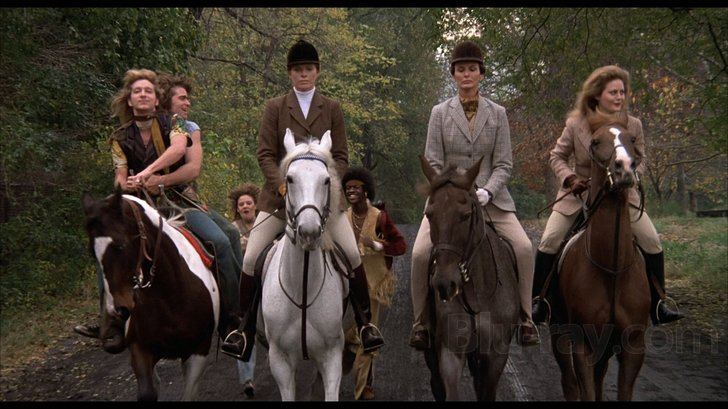
Don't be concerned when the film starts. The opening sequence in Oklahoma isn't representative
of the 1080p AVC-encoded transfer. It's the title sequence, and it looks awful. The optical
printing process that was standard procedure for superimposing titles over a film image until
about ten years ago often "locked in" dirt and print damage, but Hair is an extreme example. It's
almost as if someone went out of their way to find the grainiest, scratchiest dupe in the library for
the title shots.
The image improves dramatically once the titles end. Grain, though still present, is much better
controlled, and print damage, though still an occasional distraction, is a much less frequent
occurrence and far less severe when it occurs. The film had multiple cinematographers, of which
the lead was Forman's fellow Czech and frequent collaborator, Miroslav Ondrícek, who oversaw
the difficult task of lighting large groups of dancers and stunt people in challenging outdoor
locations such as Central Park. The Blu-ray lets you appreciate the extent of the crew's success.
The details of Ann Roth's elaborate costume designs are on full display, showcased against the
park's autumn leaves and winding paths. Black levels are sufficiently well-delineated that the
dance routine for "Colored Spade", which is performed by African-Americans in a tunnel at
night, plays out like the ironic dance of shadows that choreographer Twyla Tharp obviously
intended.
If there were motion or compression artifacts of any kind, they escaped my attention. Colors
appear to be accurate without oversaturation. Hair uses a variety of palettes, including the earth
tones of Central Park in autumn, the blues and whites of the city in winter, the pastel dresses and
black tuxedos of the engagement party and, of course, the dull army green at Claude's base.
One of the film's recurrent visual strategies is to "discover" a character in a large landscape filled
with people, and the film did its crowd scenes the old-fashioned way, before CGI allowed crowds
to be added in post-production. Scenes of this nature never had the right impact on home video,
because there wasn't enough resolution to show a huge crowd in sufficient detail. But there is
now.
Hair Blu-ray Movie, Audio Quality 
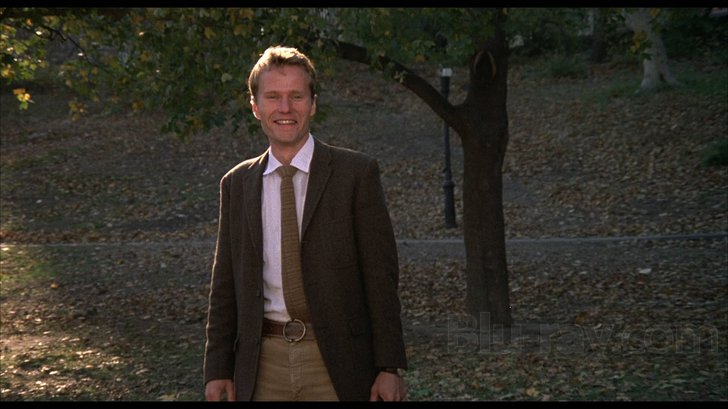
According to IMDb, Hair received a 70mm release, in which case there would have been a 6-track mix. This may account for the quality of the 5.1 track, presented here in DTS lossless. Unlike many remixes from matrixed surround, this track feels genuinely immersive, with a sense of the singing crowd dispersed around the entire surround field. Given how heavily the film depends on its score, and how much of the music is supported by a large chorus, this effective use of a large soundscape in a film from 1979 is a welcome surprise.
Hair Blu-ray Movie, Special Features and Extras 
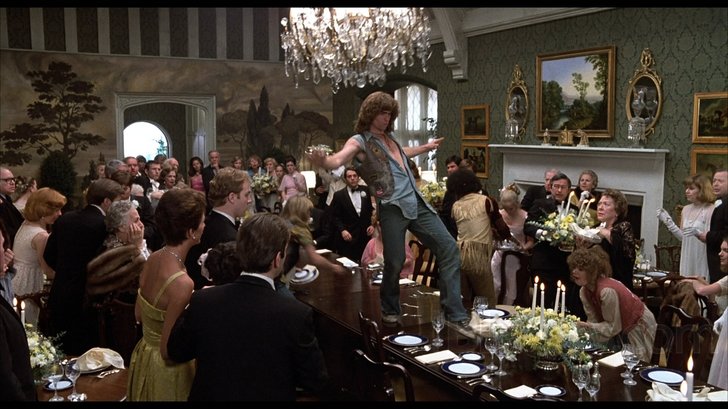
As with other recent MGM discs too numerous to list, Fox has mastered this title with no main menu but with BD-Java, omitting the ability to set bookmarks. No BDJ-encoded disc should ever lack this capability. BDJ prevents the user from stopping playback and starting from the same position, and bookmarking is the only workaround. Its omission is inexcusable.
- Theatrical Trailer (HD; 1.85:1; 2:49): It's a good-looking trailer, but whoever approved that voiceover should be fed large doses of hallucinogens. The announcer sounds like he's selling used cars.
Hair Blu-ray Movie, Overall Score and Recommendation 
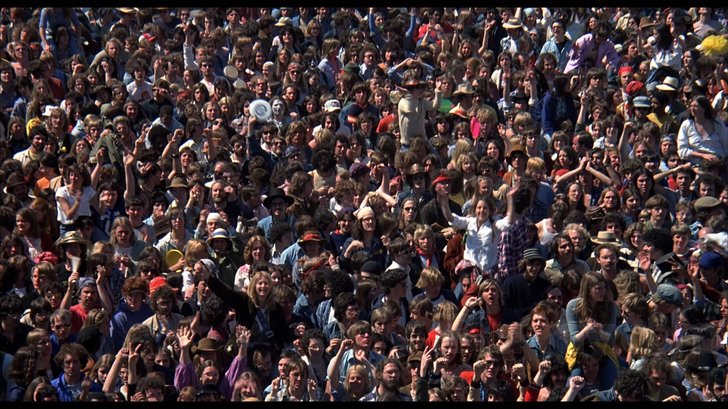
Fox/MGM has done a nice job with Hair on Blu-ray, given the limitations of the source material.
(One can never know, except in the case of a Criterion edition or a special project like the
Godfather restoration, how thorough a search
has been made to find the best sources.) The disc's
only real disappointment is the lack of major extras. Otherwise, it is recommended.
Similar titles
Similar titles you might also like

How to Succeed in Business Without Really Trying
Limited Edition to 3000
1967

Victor/Victoria: The Broadway Musical
1995

Thoroughly Modern Millie
1967

Bye Bye Birdie
1963

Fame
1980

Copacabana
1947

Godspell
1973

A Night at the Opera
Warner Archive Collection
1935

Du Barry Was a Lady
Warner Archive Collection
1943

Across the Universe 4K
2007

Company
Stephen Sondheim's Company
2011

The Unsinkable Molly Brown
Warner Archive Collection
1964

It's Always Fair Weather
Warner Archive Collection
1955

Jesus Christ Superstar
1973

Mame
1974

Company
Stephen Sondheim's Company
2007

Hamilton
2020

A Funny Thing Happened on the Way to the Forum
1966

Camp
2003

Hello, Dolly!
Fox Studio Classics
1969
